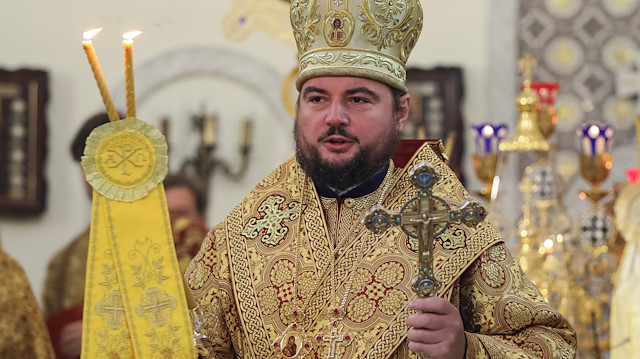
Ukraine in October secured approval to set up an independent church from the Ecumenical Patriarch in Istanbul, the global spiritual leader of Orthodox Christians.
The next step is for Ukraine's various church strands to meet to decide the make-up of the church and who will lead it.
The Russian Orthodox Church retaliated by breaking off all ties with Istanbul and accused the United States of engineering the split behind the scenes. President Vladimir Putin on Wednesday warned of "painful consequences".
Patriarch Kirill of Moscow called the Ecumenical Patriarch Bartholomew's support for an independent Ukrainian church "shameless".
He said Orthodox unity could be preserved only through the "resistance of our people, our clergy, our episcopate, to every mean trick, to every heresy, to every schism".
Ukraine and Russia trace their Orthodox Christian roots to Volodymyr the Great, the prince whose baptism in 988 in Kiev led to the christianisation of the region known as the "Kievan Rus".
The Moscow Patriarchate, which is aligned with the Russian Orthodox Church, earlier dominated in Ukraine but has been challenged by a rival known as the Kiev Patriarchate formed after the 1991 break-up of the Russian-dominated Soviet Union.
Support for the Kiev Patriarchate swelled after the annexation of Crimea. It supports church independence and Ukraine's closer integration with the West.
Oleksandr estimates between 40-70 percent of Moscow Patriarchate churches will join the new church, though his parishioners have mixed views. Some support it, while others, like Anna Trofimova, oppose it as a "political game".
Archbishop Kliment, spokesman for the Ukrainian Orthodox Church (Moscow Patriarchate), said in an interview that only a tiny fraction of his church's believers wanted to switch across.
Asked about the attacks on Oleksandr, Kliment said his church was itself the victim of a smear campaign.
As an example, he cited Foreign Minister Pavlo Klimkin's statement that his church had no place in Ukraine and suggested it root out Russian agents in its ranks.
Kliment said support for independence had not risen but the authorities were pushing for it "because in six months there will be presidential elections."
Hello, the comments you share on our site are a valuable resource for other users. Please respect other users and different opinions. Do not use rude, offensive, derogatory, or discriminatory language.
The floor is all yours.








